2020 UW-IT Access Technology Services Annual Report
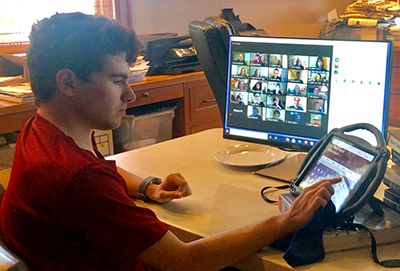
Director, Sheryl Burgstahler, Ph.D.
The University of Washington’s Accessible Technology Services (ATS) promotes the success of people with disabilities using technology as an empowering tool to increase independence, productivity, and participation in education. We believe this important work contributes to lively communities that value diversity and equity. ATS supports two groups: The Information Technology Accessibility Team (ITAT) and the Disabilities, Opportunities, Internetworking, and Technology (DO-IT) Team.
IT Accessibility Team
Manager, Terrill Thompson
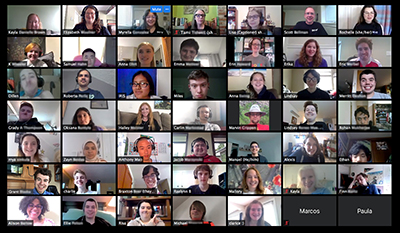
ITAT serves to ensure that UW students, faculty, and staff with disabilities have access to technology that helps them accomplish their work. ITAT staff provide consultation and support to the UW community to help ensure that websites, documents, videos, software, and other technologies are accessible.
They also offer a variety of services. The team
- provides trainings,
- develops and maintains helpful resources such as the Accessible Technology website (uw.edu/accessibility), and
- offers captioning and accessibility remediation services for high impact videos and PDFs respectively.
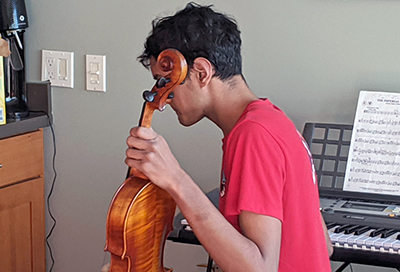
ITAT staff work collaboratively with IT vendors to help them to provide products and services that meet the UW’s accessibility standards. In 2020, they collaborated with 30 vendors including WorkDay, Microsoft, Google, Panopto, Zoom, Instructure, and many others.
Disabilities, Opportunities, Internetworking, and Technology
Manager, Scott Bellman
DO-IT has continued to secure external funding to address accessibility issues statewide, nationally, and internationally. Working with UW and external partners, DO-IT supports activities that increase the success of people with disabilities in college and careers. It was founded in 1992 with a grant from the National Science Foundation.
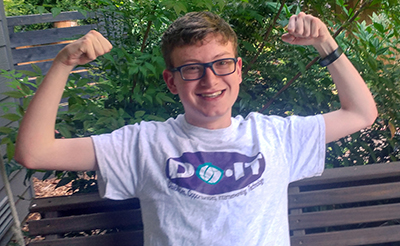
In 2020, hundreds of students attended DO-IT’s virtual college-preparation camps at the
UW, engaged in mentoring, and secured challenging internships and careers. DO-IT’s longitudinal study continues to document the success of programs and participants.
DO-IT worked with organizations in the United States and other countries to adapt evidence-based practices to
- promote the success of people with disabilities in college studies and careers;
- advance the development and use of technology for people with disabilities; and
- promote the universal design of instruction, physical spaces, technology, and services.
IT Accessibility Team
IT Accessibility Team
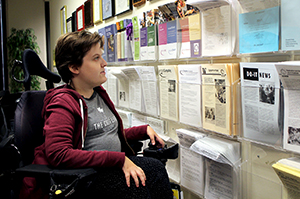
674 PDF Documents Remediated
ITAT staff offers free remediation of UW PDF documents that are highly-visible, high-impact, multiple use, and/or strategic. In 2020, ITAT staff remediated 674 documents totalling 6102 pages, positively affecting thousands of students, faculty, staff, and visitors as they access public-facing documents. Examples of high-impact documents remediated include UW Medicine Informed Consent forms, the 2020 Commencement program, and Fast Facts Pride Points 2020 from the Office of Planning & Budget. For additional information about document accessibility, see uw.edu/accessibility/documents.
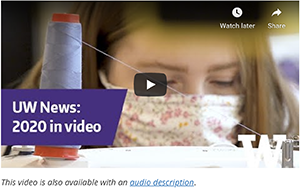
237 Videos Captioned
ITAT staff provided free captioning of UW videos that are highly-visible, high-impact, multiple use, and/or strategic. In 2020, ITAT staff captioned 237 videos with over 68 hours of run time, estimated to impact over 137,000 viewers. Examples of high impact videos captioned include videos for UW Medicine related to the COVID-19 response and videos for departments’ graduations. ITAT staff also helped UW video owners add audio description to their videos, a standard technique that makes highly visual video content accessible to individuals who are unable to see the video. For additional information about video accessibility, including ITAT’s free captioning service, see uw.edu/accessibility/videos.
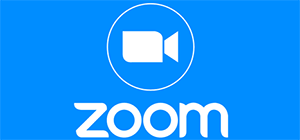
30 Vendor Partnerships
ITAT staff work collaboratively with many of the technology vendors with whom the UW does business, in order to help them design and develop more accessible products and services. Key partnerships in 2020 included Canvas, Google, H5P, Interfolio, Manifold, Microsoft, Panopto, PollEverywhere, Pressbooks, ServiceNow, WorkDay, and Zoom.
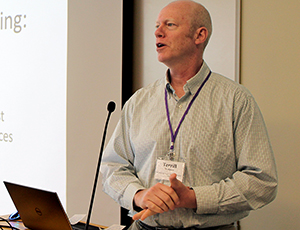
100+ Presentations and Events
ITAT staff host monthly activities such as Accessible Technology Office Hours and the UW Web Accessibility/Usability Meetup. They also provide three half-day trainings per year to their network of IT Accessibility Liaisons and deliver customized trainings on request to campus units and departments. In 2020, ITAT also coordinated the IT Accessibility Challenge, a six-month period in which participants were taught, supported, and encouraged to take up to 20 simple actions to improve their IT accessibility; and organized an IT Accessibility Capacity Building Institute for Washington state postsecondary institutions. ITAT Staff are globally recognized for their expertise on IT accessibility, and in 2020 they gave presentations at various national conferences, including the CSUN Assistive Technology Conference, AHEAD, EDUCAUSE, HighEdWeb, and Accessing Higher Ground.
Collaborator Spotlights
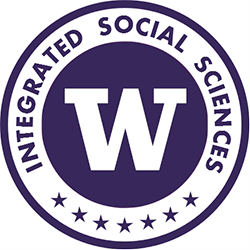
Integrated Social Sciences
Faculty and staff in the Integrated Social Sciences unit in the College of Arts and Sciences reported significant efforts as part of the IT Accessibility Challenge 2020, engaging many members in their unit in improving the accessibility of their core courses. They also organized an accessibility training for the campus-wide Online Advising Group; worked proactively to ensure their department’s virtual graduation event was accessible; and actively promoted accessibility best practices among the organizers of decentralized graduation events throughout the university.
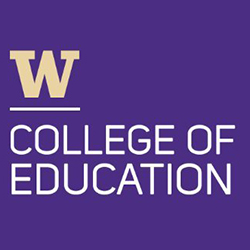
College of Education
The College of Education made significant proactive efforts to train faculty in the accessible/universal design of online courses as they quickly converted on-site courses to online formats. Instructors were offered web-based professional development that covered topics for making their courses accessible and how to use accessibility checkers, including those used in the creation and remediating of documents and presentation slides as well as the Ally tool, which is integrated within UW’s Canvas learning management system.
ITAT 2020 Highlights
|
Organized the |
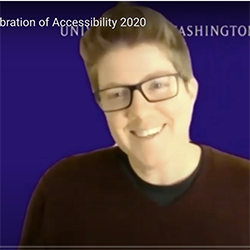
|
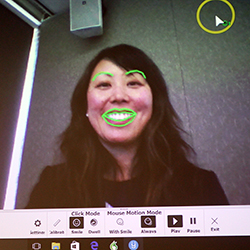
|
Hosted a full day |
|
Coordinated the |

|
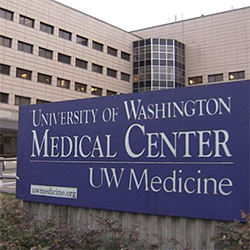
|
Worked extensively |
IT Accessibility Team
IT Accessibility Team

674 PDF Documents Remediated
ITAT staff offers free remediation of UW PDF documents that are highly-visible, high-impact, multiple use, and/or strategic. In 2020, ITAT staff remediated 674 documents totalling 6102 pages, positively affecting thousands of students, faculty, staff, and visitors as they access public-facing documents. Examples of high-impact documents remediated include UW Medicine Informed Consent forms, the 2020 Commencement program, and Fast Facts Pride Points 2020 from the Office of Planning & Budget. For additional information about document accessibility, see uw.edu/accessibility/documents.

237 Videos Captioned
ITAT staff provided free captioning of UW videos that are highly-visible, high-impact, multiple use, and/or strategic. In 2020, ITAT staff captioned 237 videos with over 68 hours of run time, estimated to impact over 137,000 viewers. Examples of high impact videos captioned include videos for UW Medicine related to the COVID-19 response and videos for departments’ graduations. ITAT staff also helped UW video owners add audio description to their videos, a standard technique that makes highly visual video content accessible to individuals who are unable to see the video. For additional information about video accessibility, including ITAT’s free captioning service, see uw.edu/accessibility/videos.

30 Vendor Partnerships
ITAT staff work collaboratively with many of the technology vendors with whom the UW does business, in order to help them design and develop more accessible products and services. Key partnerships in 2020 included Canvas, Google, H5P, Interfolio, Manifold, Microsoft, Panopto, PollEverywhere, Pressbooks, ServiceNow, WorkDay, and Zoom.

100+ Presentations and Events
ITAT staff host monthly activities such as Accessible Technology Office Hours and the UW Web Accessibility/Usability Meetup. They also provide three half-day trainings per year to their network of IT Accessibility Liaisons and deliver customized trainings on request to campus units and departments. In 2020, ITAT also coordinated the IT Accessibility Challenge, a six-month period in which participants were taught, supported, and encouraged to take up to 20 simple actions to improve their IT accessibility; and organized an IT Accessibility Capacity Building Institute for Washington state postsecondary institutions. ITAT Staff are globally recognized for their expertise on IT accessibility, and in 2020 they gave presentations at various national conferences, including the CSUN Assistive Technology Conference, AHEAD, EDUCAUSE, HighEdWeb, and Accessing Higher Ground.
Collaborator Spotlights

Integrated Social Sciences
Faculty and staff in the Integrated Social Sciences unit in the College of Arts and Sciences reported significant efforts as part of the IT Accessibility Challenge 2020, engaging many members in their unit in improving the accessibility of their core courses. They also organized an accessibility training for the campus-wide Online Advising Group; worked proactively to ensure their department’s virtual graduation event was accessible; and actively promoted accessibility best practices among the organizers of decentralized graduation events throughout the university.

College of Education
The College of Education made significant proactive efforts to train faculty in the accessible/universal design of online courses as they quickly converted on-site courses to online formats. Instructors were offered web-based professional development that covered topics for making their courses accessible and how to use accessibility checkers, including those used in the creation and remediating of documents and presentation slides as well as the Ally tool, which is integrated within UW’s Canvas learning management system.
ITAT 2020 Highlights
|
Organized the |

|

|
Hosted a full day |
|
Coordinated the |

|

|
Worked extensively |
The DO-IT Team
DO-IT 2020 Milestones
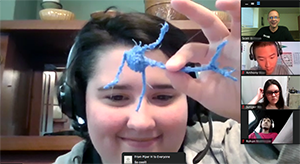
Grant-Funded Projects
DO-IT staff worked on many ambitious projects funded by the National Science Foundation (NSF). The projects included AccessComputing, AccessCSforAll, Access to Informal STEM Learning, AccessINCLUDES, Neuroscience for Neurodiverse Learners, Access Engineering Research Centers (ERC), ERC INCLUDES, and AccessCyberlearning. Staff also worked on DO-IT’s state-funded Scholars program, and worked to maintain resources, activities, and collaborations related to legacy projects. DO-IT received funding from NSF for AccessADVANCE, which will focus on advancement of female faculty with disabilities and will be starting in January 2021.
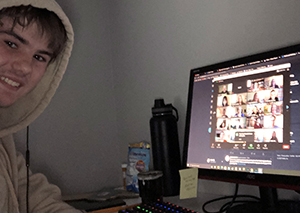
70+ Internships
DO-IT participants engaged in over 70 internships with a majority being paid internships in STEM fields. Locations included Intel, Microsoft, Amazon, Apple, Facebook, PIMCO, Google, Lawrence Livermore National Labs, JP Morgan Chase, NASA, IBM, Dell, and several universities. Through internships, students build their professional networks, learn about career fields, improve strategies for requesting job accommodations, apply academic learning to real-world environments, and access state-of-the-art equipment.
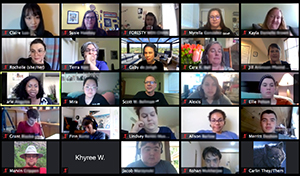
1000+ Participants
DO-IT serves over 1000 students with disabilities in our programs. Activities in 2020 included workshops, networking events, mentoring activities, disability advocacy events, and our signature Summer Study program, which was virtual this year. Through these activities, students build job seeking skills, improve their resumes, learn how to be successful in college, gain access to assistive technology, and much more.
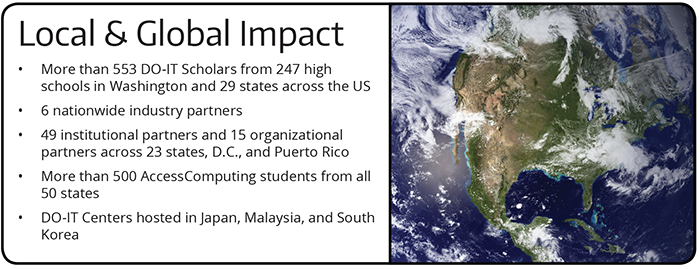
Participant Spotlights
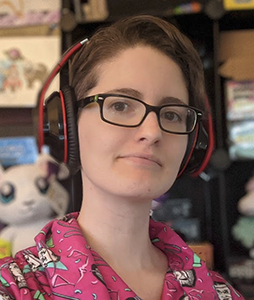
Erin Howard, Western Washington University
Erin joined the DO-IT community in 2019 as a member of AccessComputing. She is a non-traditional student who returned to community college after a seven year gap. Erin earned her associates in 2017 from Olympic College and now attends Western Washington University where she studies physics, computer science, math, and astronomy. Erin completed an AccessComputing-funded REU last summer and presented a resulting publication to the American Astronomical Society. She was also selected as a finalist for the 2021 National Center for Women & Information Technology Collegiate Award. Erin helps DO-IT by attending virtual panels where she provides insight to life as a disabled university student. Erin is also working on a white paper promoting accessibility in physics labs with a group of current and former students and faculty. Erin shares that “DO-IT lets me be the older friend and mentor I wish I had when I was younger and attempted college for the first time. Navigating disability in academia is tough, but DO-IT works hard to build up our skills and self-confidence and provide us with a wonderful community. I love being a part of DO-IT!”
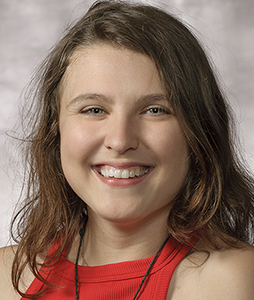
Rochelle Bowyer, University of Washington
Rochelle started her relationship with DO-IT in 2016 as a Scholar. After earning her associate’s degree at North Seattle College, she now attends the University of Washington studying communications and international studies. Rochelle continues to develop leadership and advocacy skills as a student assistant in the DO-IT office. This past summer she supported staff as they converted the DO-IT Scholars program to an online format. Rochelle helped roll out DO-IT’s new Neuroscience for Neurodiverse Learners program this past summer and is excited to be the 2021 Intern Coordinator for DO-IT’s Access to Informal STEM Learning project. Throughout the year, Rochelle has participated in panels sharing her experiences as a disabled student, writes articles, and creates content about disability culture and accessibility issues. This year, Rochelle won the “Emerging Advocate Breaking Barriers Award” sponsored by Disability Rights Washington, in part for “demonstrating advocacy methods and providing insight on how to promote a positive disability culture.” Rochelle shares that “DO-IT has given me the tools to dismantle my internalized disability stigma and start a journey of disability empowerment.”
DO-IT 2020 Highlights
|
UW mechanical |
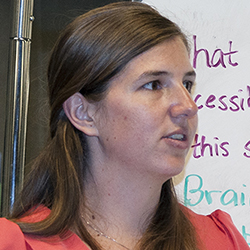
|
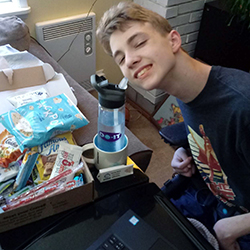
|
DO-IT hosts first |
|
AccessComputing PI |
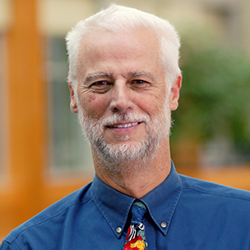
|
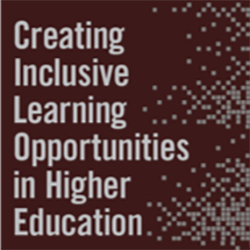
|
New book by |
The DO-IT Team
DO-IT 2020 Milestones

Grant-Funded Projects
DO-IT staff worked on many ambitious projects funded by the National Science Foundation (NSF). The projects included AccessComputing, AccessCSforAll, Access to Informal STEM Learning, AccessINCLUDES, Neuroscience for Neurodiverse Learners, Access Engineering Research Centers (ERC), ERC INCLUDES, and AccessCyberlearning. Staff also worked on DO-IT’s state-funded Scholars program, and worked to maintain resources, activities, and collaborations related to legacy projects. DO-IT received funding from NSF for AccessADVANCE, which will focus on advancement of female faculty with disabilities and will be starting in January 2021.

70+ Internships
DO-IT participants engaged in over 70 internships with a majority being paid internships in STEM fields. Locations included Intel, Microsoft, Amazon, Apple, Facebook, PIMCO, Google, Lawrence Livermore National Labs, JP Morgan Chase, NASA, IBM, Dell, and several universities. Through internships, students build their professional networks, learn about career fields, improve strategies for requesting job accommodations, apply academic learning to real-world environments, and access state-of-the-art equipment.

1000+ Participants
DO-IT serves over 1000 students with disabilities in our programs. Activities in 2020 included workshops, networking events, mentoring activities, disability advocacy events, and our signature Summer Study program, which was virtual this year. Through these activities, students build job seeking skills, improve their resumes, learn how to be successful in college, gain access to assistive technology, and much more.

Participant Spotlights

Erin Howard, Western Washington University
Erin joined the DO-IT community in 2019 as a member of AccessComputing. She is a non-traditional student who returned to community college after a seven year gap. Erin earned her associates in 2017 from Olympic College and now attends Western Washington University where she studies physics, computer science, math, and astronomy. Erin completed an AccessComputing-funded REU last summer and presented a resulting publication to the American Astronomical Society. She was also selected as a finalist for the 2021 National Center for Women & Information Technology Collegiate Award. Erin helps DO-IT by attending virtual panels where she provides insight to life as a disabled university student. Erin is also working on a white paper promoting accessibility in physics labs with a group of current and former students and faculty. Erin shares that “DO-IT lets me be the older friend and mentor I wish I had when I was younger and attempted college for the first time. Navigating disability in academia is tough, but DO-IT works hard to build up our skills and self-confidence and provide us with a wonderful community. I love being a part of DO-IT!”

Rochelle Bowyer, University of Washington
Rochelle started her relationship with DO-IT in 2016 as a Scholar. After earning her associate’s degree at North Seattle College, she now attends the University of Washington studying communications and international studies. Rochelle continues to develop leadership and advocacy skills as a student assistant in the DO-IT office. This past summer she supported staff as they converted the DO-IT Scholars program to an online format. Rochelle helped roll out DO-IT’s new Neuroscience for Neurodiverse Learners program this past summer and is excited to be the 2021 Intern Coordinator for DO-IT’s Access to Informal STEM Learning project. Throughout the year, Rochelle has participated in panels sharing her experiences as a disabled student, writes articles, and creates content about disability culture and accessibility issues. This year, Rochelle won the “Emerging Advocate Breaking Barriers Award” sponsored by Disability Rights Washington, in part for “demonstrating advocacy methods and providing insight on how to promote a positive disability culture.” Rochelle shares that “DO-IT has given me the tools to dismantle my internalized disability stigma and start a journey of disability empowerment.”
DO-IT 2020 Highlights
|
UW mechanical |

|

|
DO-IT hosts first |
|
AccessComputing PI |

|

|
New book by |
Funding, Impact, and Resources
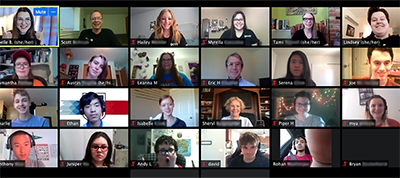
Funding
Accessible Technology Services is supported by various sources: University of Washington, National Science Foundation, Washington State, various foundations, and the support and sponsorship of donors. To learn more about our funding, visit us online.
Lasting Impact and Consultation
ATS increases the participation of individuals with disabilities in academic and career fields through on-campus support and off-campus interventions for both people with disabilities and faculty, staff, and employers. ATS provides education, opportunities, and support for individuals with disabilities to reach their academic and career potentials.
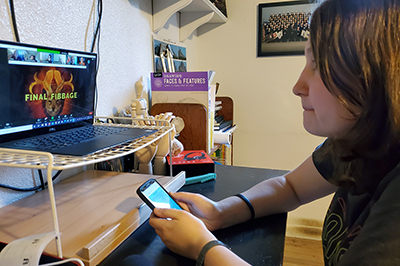
ATS’s impact continues long past the duration of each grant and budget; we facilitate lasting change and knowledge for individuals as well as create resources that can be used freely by all. Please reach out to our teams for consultation, resource sharing, advocacy activities, and more!
Support ATS Efforts!
To support our continued work, visit our Support Page. Find resources online:
Disabilities, Opportunities, Internetworking, Technology
Funding, Impact, and Resources

Funding
Accessible Technology Services is supported by various sources: University of Washington, National Science Foundation, Washington State, various foundations, and the support and sponsorship of donors. To learn more about our funding, visit us online.
Lasting Impact and Consultation
ATS increases the participation of individuals with disabilities in academic and career fields through on-campus support and off-campus interventions for both people with disabilities and faculty, staff, and employers. ATS provides education, opportunities, and support for individuals with disabilities to reach their academic and career potentials.

ATS’s impact continues long past the duration of each grant and budget; we facilitate lasting change and knowledge for individuals as well as create resources that can be used freely by all. Please reach out to our teams for consultation, resource sharing, advocacy activities, and more!
Support ATS Efforts!
To support our continued work, visit our Support Page. Find resources online:
Disabilities, Opportunities, Internetworking, Technology
2020 UW-IT Access Technology Services Annual Report

Director, Sheryl Burgstahler, Ph.D.
The University of Washington’s Accessible Technology Services (ATS) promotes the success of people with disabilities using technology as an empowering tool to increase independence, productivity, and participation in education. We believe this important work contributes to lively communities that value diversity and equity. ATS supports two groups: The Information Technology Accessibility Team (ITAT) and the Disabilities, Opportunities, Internetworking, and Technology (DO-IT) Team.
IT Accessibility Team
Manager, Terrill Thompson

ITAT serves to ensure that UW students, faculty, and staff with disabilities have access to technology that helps them accomplish their work. ITAT staff provide consultation and support to the UW community to help ensure that websites, documents, videos, software, and other technologies are accessible.
They also offer a variety of services. The team
- provides trainings,
- develops and maintains helpful resources such as the Accessible Technology website (uw.edu/accessibility), and
- offers captioning and accessibility remediation services for high impact videos and PDFs respectively.

ITAT staff work collaboratively with IT vendors to help them to provide products and services that meet the UW’s accessibility standards. In 2020, they collaborated with 30 vendors including WorkDay, Microsoft, Google, Panopto, Zoom, Instructure, and many others.
Disabilities, Opportunities, Internetworking, and Technology
Manager, Scott Bellman
DO-IT has continued to secure external funding to address accessibility issues statewide, nationally, and internationally. Working with UW and external partners, DO-IT supports activities that increase the success of people with disabilities in college and careers. It was founded in 1992 with a grant from the National Science Foundation.

In 2020, hundreds of students attended DO-IT’s virtual college-preparation camps at the
UW, engaged in mentoring, and secured challenging internships and careers. DO-IT’s longitudinal study continues to document the success of programs and participants.
DO-IT worked with organizations in the United States and other countries to adapt evidence-based practices to
- promote the success of people with disabilities in college studies and careers;
- advance the development and use of technology for people with disabilities; and
- promote the universal design of instruction, physical spaces, technology, and services.